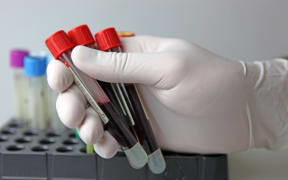A third of New Zealand women aged 38 will have contracted the common sexually transmitted infection chlamydia, research shows.

Chlamydia can cause fertility problems for women. Photo: AFP
The findings come from the Dunedin Multidisciplinary Health and Development Study, which follows about 1000 people born in the city between April 1972 and March 1973.
The authors said the results highlighted the need for sexually active people of any age to use condoms and be tested regularly.
Lead researcher Antoinette Righarts said chlamydia, which can cause fertility problems for women, was more common in New Zealand than previously thought.
Dr Righarts said the rate of infection for men was slightly lower at one in five, but that could be due to the testing methods.
She said the rates were likely to be even higher in some other cohorts.
"This high cumulative exposure we found at age 38 was mainly due to infections occurring when this cohort were teenagers and young adults, which was before New Zealand - and other high-income countries - experienced a marked increase in chlamydia in the late 1990s."
Her colleague, Nigel Dickson, said the study group was tested several times for signs of infection.
"We showed that overall the chlamydia rates in the cohort were lower after age 26, but this decline was mainly because fewer individuals had multiple sexual partners as they got older."
The findings were published in the journal Sexually Transmitted Diseases.






